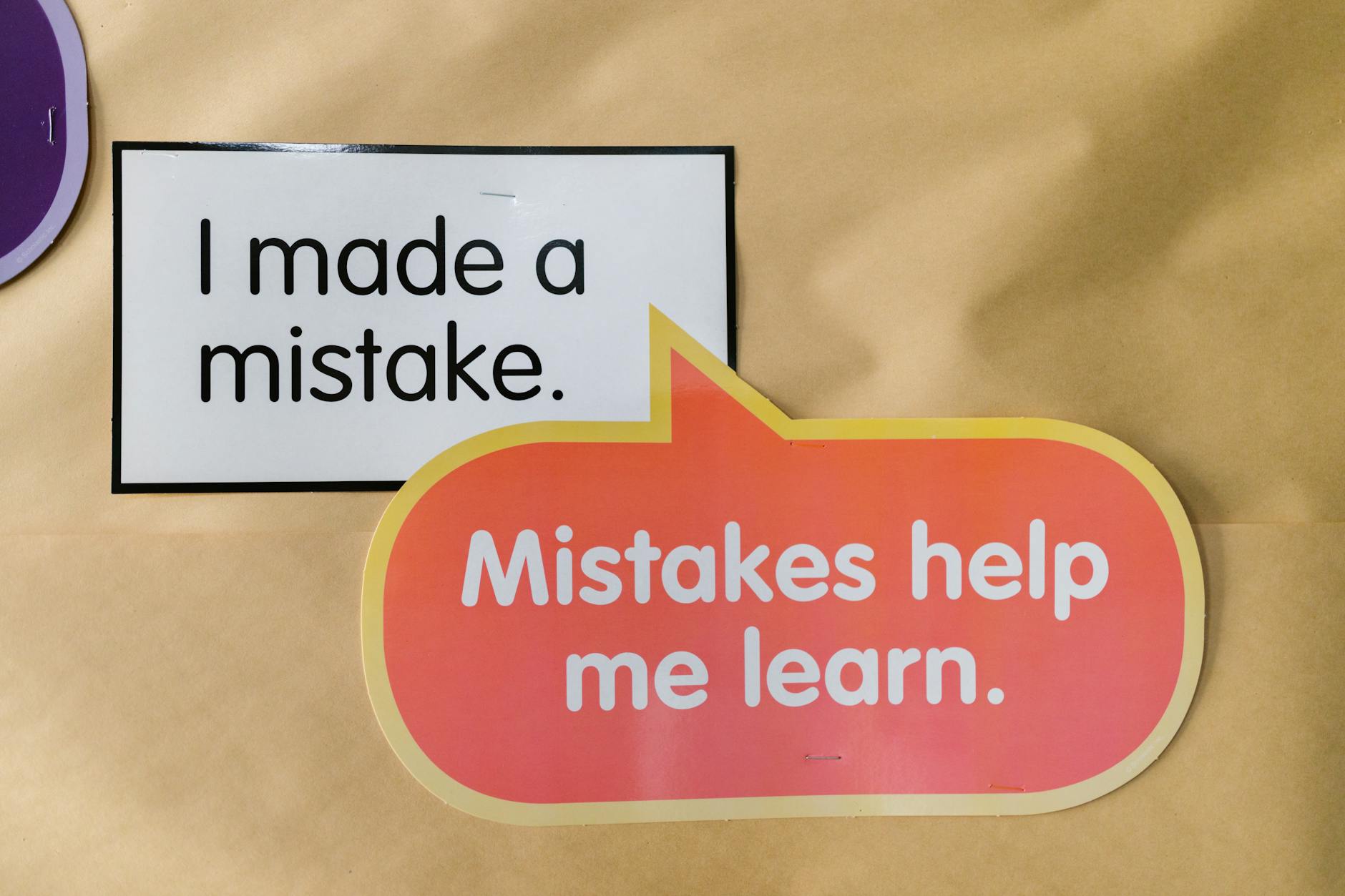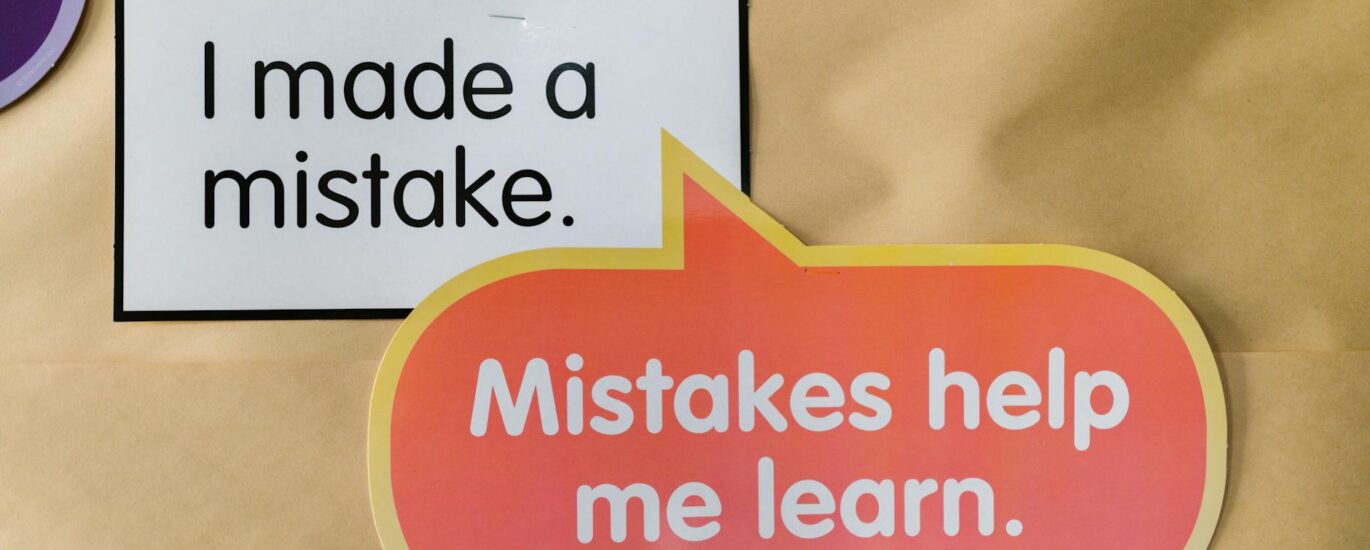
Have you ever made a mistake that you wished you could take back? Maybe it was a missed opportunity, a poor decision, or something you could have handled better. It happens to everyone. The question is: how do you respond? How do you learn from your mistakes and use them to become better?
In a world that often pushes us to move quickly and achieve more, self-reflection is an essential but often overlooked tool for personal and professional growth. By reflecting on our actions and the lessons learned from our failures, we can make better decisions, develop emotional intelligence, and continuously improve. But what exactly is self-reflection? And how can we use it to learn from our mistakes? Let’s dive in.
Table of Contents
What Is Self-Reflection?
Self-reflection is the process of examining your own thoughts, actions, behaviors, and emotions in order to gain a deeper understanding of yourself. It’s about pausing to ask yourself: What went well? What could have been better? And most importantly, What can I learn from this?
It’s easy to overlook the importance of self-reflection in the hustle and bustle of life. However, taking a moment to reflect helps you identify patterns, triggers, and behaviors that influence your decisions. It also allows you to focus on growth and personal development instead of remaining stuck in repetitive cycles of mistakes.
Also Read: How to Get Out of Your Comfort Zone: A Step-by-Step Guide to Personal Growth
The Role of Mistakes in Self-Reflection
Mistakes are an unavoidable part of life. They are a natural consequence of being human, and they often offer the most valuable lessons. The key lies in how you choose to approach them. Rather than seeing mistakes as failures, self-reflection encourages us to view them as opportunities for learning and improvement. By reflecting on our errors, we uncover insights that can help us make more informed decisions moving forward.
Think about the last mistake you made. Instead of just feeling regretful or upset, ask yourself the following questions:
- What happened? (Understand the situation and your role in it.)
- Why did it happen? (Identify the root causes and contributing factors.)
- What can I do differently next time? (Formulate actionable steps for growth.)
Why Self-Reflection Is Crucial
Self-reflection is not just a nice-to-have skill; it’s an essential component of personal and professional success. By taking time to reflect, you can:
- Learn from Repeated Mistakes: If you keep making the same mistakes without taking time to reflect, you’re likely stuck in a cycle. Self-reflection helps break this cycle by enabling you to understand your patterns and triggers.
- Make Better Decisions: When you actively reflect on your mistakes, you develop the ability to make wiser choices in the future. You become less impulsive and more thoughtful in your decision-making process.
- Grow Emotionally: Self-reflection promotes emotional intelligence, helping you understand your feelings, motivations, and how your actions affect others. This understanding leads to healthier relationships and a more grounded sense of self.
- Improve Problem-Solving Skills: By reflecting on past mistakes, you begin to see solutions more clearly. You gain insights into how to approach challenges from different perspectives, which enhances your problem-solving abilities.
- Boost Self-Awareness: Self-reflection promotes greater self-awareness, helping you understand your strengths, weaknesses, values, and goals. With this clarity, you can align your actions with your personal values and make choices that are in harmony with your true self.
How to Learn from Your Mistakes
Learning from your mistakes is not as simple as just recognizing that you’ve made one. It requires active engagement and a commitment to growth. Here’s how you can ensure you’re truly learning from your mistakes:
- Accept Responsibility: The first step in learning from your mistakes is accepting responsibility for your actions. This doesn’t mean beating yourself up; rather, it’s about acknowledging your role in the situation and understanding how your actions contributed to the outcome.
- Analyze the Situation: Once you’ve taken responsibility, the next step is to analyze the situation. Break down what happened and identify the key factors that led to the mistake. What could you have done differently? What did you overlook?
- Identify Key Lessons: From your analysis, identify the lessons you can take away. This is the most important step. The purpose of reflecting on mistakes is to extract valuable lessons that will guide you in the future. For example, you might learn the importance of better time management, improved communication, or setting clearer boundaries.
- Implement Change: Simply recognizing the lesson isn’t enough. You need to take actionable steps to implement changes. Set goals that reflect your newfound understanding, and consciously work toward avoiding similar mistakes in the future.
- Seek Feedback: Sometimes, our perspective is limited. Don’t hesitate to seek feedback from others—whether it’s a mentor, a colleague, or a friend. They may offer insights that you hadn’t considered and help you refine your approach.
The 5 Steps for Effective Self-Reflection
While self-reflection can be an individual process, there are key steps you can follow to ensure it’s effective and impactful. Here’s a simple guide:
- Pause and Create Space for Reflection: In the midst of a busy schedule, it’s essential to carve out time for self-reflection. Find a quiet place where you can think without distractions. This might be in the morning with a cup of coffee or during a walk in nature.
- Ask Yourself Thought-Provoking Questions: Start by asking yourself insightful questions like:
- What was the situation?
- What was my thought process at the time?
- How did I feel during the experience?
- What were the consequences of my actions?
- Be Honest with Yourself: Self-reflection requires honesty. Don’t sugarcoat your mistakes or justify your actions. Own up to your mistakes and acknowledge how they might have impacted you or others.
- Look for Patterns: Over time, reflect on whether you see any recurring patterns in your mistakes. Do certain situations tend to trigger the same outcomes? This is a great way to identify areas for improvement.
- Set Actionable Goals: Based on your reflections, set concrete goals to prevent the same mistakes from happening again. Ensure these goals are realistic, measurable, and aligned with your values.
Overcoming the Fear of Self-Reflection
One of the biggest hurdles to self-reflection is the fear of facing our mistakes. Many people avoid self-reflection because they fear judgment or guilt. However, it’s important to reframe how we think about mistakes and failure.
Instead of seeing failure as something to be ashamed of, view it as an opportunity to grow. If we don’t reflect on our mistakes, we miss the chance to improve. Self-reflection is a powerful tool for personal development, and it allows us to transform our mistakes into stepping stones toward success.
Why Self-Reflection Is Important in the Workplace
Self-reflection plays a crucial role in professional development. In the workplace, it helps individuals:
- Improve Communication Skills: By reflecting on past interactions, you can identify areas where you could have communicated more effectively. This leads to stronger, more productive relationships with colleagues and clients.
- Enhance Leadership Qualities: Great leaders constantly reflect on their decisions, actions, and leadership styles. This allows them to adapt and grow, making them more effective in their roles.
- Foster Continuous Improvement: The workplace is constantly evolving, and self-reflection helps you stay on top of these changes. It encourages lifelong learning, which is essential for staying relevant in your field.
The Importance of Self-Reflection for Students
For students, self-reflection is just as important as it is for professionals. By engaging in regular self-reflection, students can:
- Improve Academic Performance: Reflecting on mistakes in assignments or exams helps students understand where they went wrong and how they can improve for the future.
- Develop Time Management Skills: Reflection encourages students to evaluate how they’re spending their time, allowing them to make better decisions about prioritizing tasks and avoiding procrastination.
- Boost Confidence: When students recognize their growth and progress through self-reflection, it can boost their confidence and motivation to keep moving forward.
Overcoming Self-Reflection Fatigue
Although self-reflection is crucial, it can sometimes feel exhausting, especially if you’re continuously reflecting without seeing immediate results. To avoid burnout, try integrating self-reflection into your routine in a manageable way:
- Set Specific Reflection Times: Instead of reflecting all the time, set aside specific moments each week to assess your progress and mistakes.
- Focus on Small Wins: Recognize and celebrate your progress, no matter how small. This helps maintain motivation and keeps the reflection process positive.
- Combine Reflection with Action: Reflection is only valuable when it leads to change. Make sure that every time you reflect, you also implement a plan for growth.
Conclusion: The Power of Self-Reflection for Success
Self-reflection is one of the most powerful tools for personal development. It allows us to learn from our mistakes, make better decisions, and grow both personally and professionally. By taking the time to pause, reflect, and learn from our past, we gain a deeper understanding of ourselves and the world around us.
Whether you’re in the workplace, a student, or simply navigating life’s challenges, the power of self-reflection is an essential skill for success. So, don’t underestimate its potential. Take the time to reflect, learn from your mistakes, and watch yourself grow into a more insightful, effective, and successful individual.




